Ditapis dengan
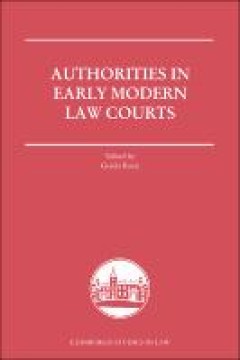
Authorities in Early Modern Law Courts
Bringing together some of the most distinguished scholars in the field including John Ford, Javier García Martín, David Ibbetson, Annamaria Monti, Peter Oestmann, Heikki Pihlajamäki and Alain Wijffels, this volume looks at the comparative development of legal practice in the early modern period across Europe. Focusing deliberately on the impact of law courts on substantive law – and not on…
- Edisi
- -
- ISBN/ISSN
- 978-1-4744-5102-4
- Deskripsi Fisik
- 314 hlm.
- Judul Seri
- -
- No. Panggil
- -
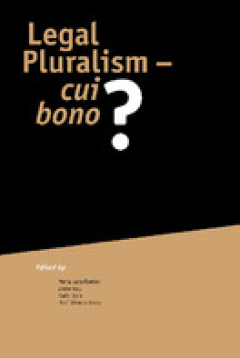
Legal Pluralism - cui bono?
An important part of the narrative of modern law and legal science has been the claim that legal unity possesses many advantages over the legal pluralism of earlier periods. This collection includes articles from the conference “Legal Pluralism – Cui bono?” organised by the School of Law in the University of Tartu in 2015. The conference papers not only identify the real dangers and chall…
- Edisi
- -
- ISBN/ISSN
- 978-9949-77-841-6
- Deskripsi Fisik
- 196 hlm.
- Judul Seri
- -
- No. Panggil
- -
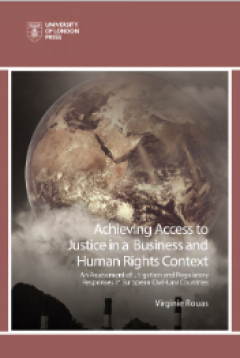
Achieving Access to Justice in a Business and Human Rights Context: An Assess…
Achieving Access to Justice in a Business and Human Rights Context explores the interplay between access to justice and business and human rights- a growing area of international human rights law- in European civil-law countries. Multinational enterprises (MNEs) can contribute to economic prosperity and social development in the countries where they operate. At the same time, their activities m…
- Edisi
- -
- ISBN/ISSN
- 978-1-911507-19-2
- Deskripsi Fisik
- 422 hlm.
- Judul Seri
- -
- No. Panggil
- -
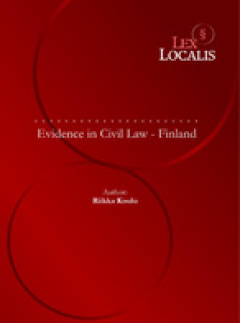
Evidence in Civil Law - Finland
Finnish civil procedure has a close connection with other Scandinavian legal systems and co-operation between the States is active. In addition, the legislation, case-law and scholarly doctrine are more and more influenced by European co-operation through the EU and Council of Europe. The principles of free disposition, free assessment of evidence, audiatur altera pars, and burden of proof form…
- Edisi
- -
- ISBN/ISSN
- 978-961-6842-47-1
- Deskripsi Fisik
- 58 hlm.
- Judul Seri
- -
- No. Panggil
- -
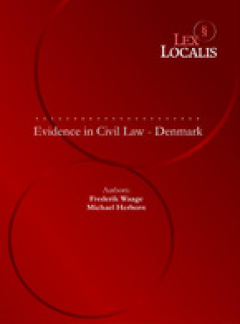
Evidence in Civil Law - Denmark
Danish civil procedure is based on a number of procedural law principles that affect the taking of evidence, including the principle of party presentation, the principle of disposition, and the principle of free assessment of evidence. The nature of Danish procedural law tends towards the adversarial model rather than the inquisitorial model. Evidence is taken during the hearing and the princip…
- Edisi
- -
- ISBN/ISSN
- 978-961-6842-46-4
- Deskripsi Fisik
- 42 hlm.
- Judul Seri
- -
- No. Panggil
- -
 Karya Umum
Karya Umum  Filsafat
Filsafat  Agama
Agama  Ilmu-ilmu Sosial
Ilmu-ilmu Sosial  Bahasa
Bahasa  Ilmu-ilmu Murni
Ilmu-ilmu Murni  Ilmu-ilmu Terapan
Ilmu-ilmu Terapan  Kesenian, Hiburan, dan Olahraga
Kesenian, Hiburan, dan Olahraga  Kesusastraan
Kesusastraan  Geografi dan Sejarah
Geografi dan Sejarah